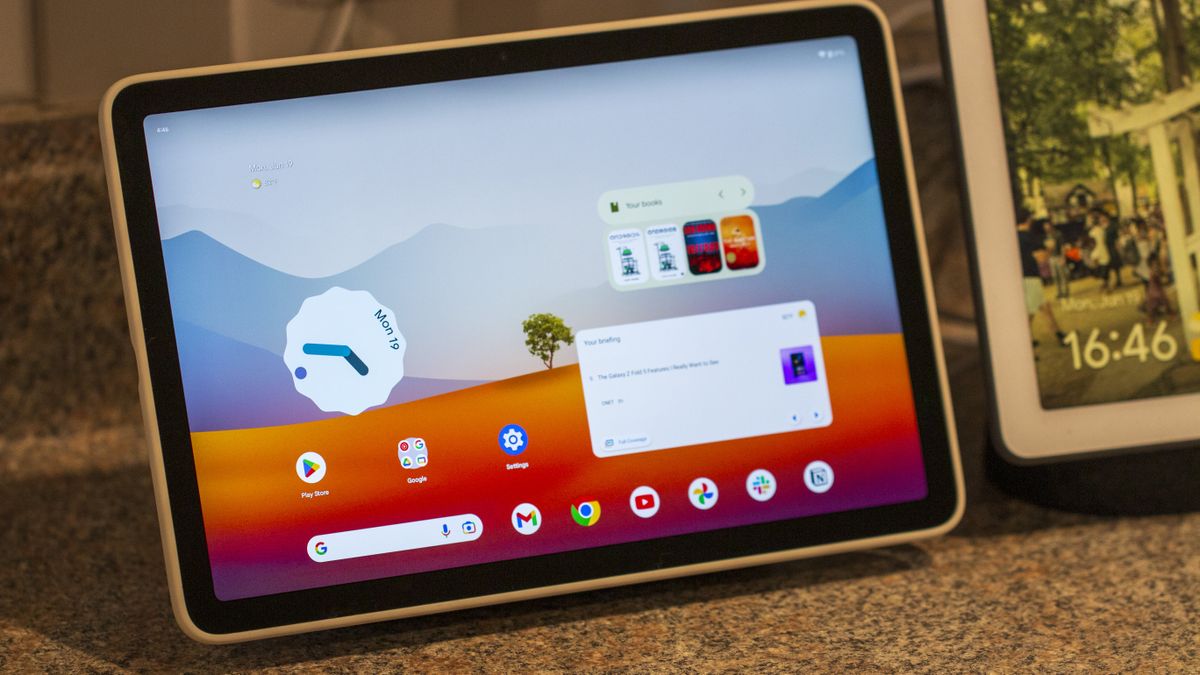There are clues that Google is working on a new Nest Hub Max to replace the now five-year-old model. This is good news for anyone worried that the Pixel Tablet was poised to replace Google’s smart displays since the tablet launched with a few features and accessories that made it an “almost” replacement.
I’ve been thinking about this a lot lately and realized that Google needs to mash the Nest Hub and Pixel Tablet together and create something new and better.
Android & Chill
(Image credit: Future)
One of the web’s longest-running tech columns, Android & Chill is your Saturday discussion of Android, Google, and all things tech.
A new Nest Hub Max that runs an instance of Gemini Nano is a thing Google could easily create. Imagine a Pixel tablet inside a bigger body, minus the battery, with a speaker (or two) added and you’re almost there. I’m not saying hardware design is easy, but this sounds more like a hardware mod than a big engineering project.
Android is easily modified on the software front so that a home interface that looks and feels like the existing Nest Hub software can be added, and all the things that make it complicated can be removed or hidden.
You would be left with a screen with a touch interface when you need it, a camera and/or sleep sensor array, a speaker that sounds nice, and apps like Chrome and YouTube to provide a good media experience. The ability to install things like the Netflix or Spotify app could make it one of the best smart home devices you can buy.
More importantly, you can replace Google Assistant with Google Gemini running on the device. That’s where Gemini Nano comes into play, and this would be the best part.

(Image credit: Nicholas Sutrich / Android Central)
Gemini Nano is when smart AI “stuff” runs mostly on your device without reporting back to the Google mothership. It’s built into the Pixel 8 and Galaxy S24, powering various tools and all sorts of fancy camera tricks.
It’s an important step forward for Google’s AI team because, previously, almost everything had to go through the cloud. Google still offers bigger and more powerful AI models like Gemini Ultra that lean heavily on cloud computing, but with Gemini Nano, a mobile CPU, and some extra memory, you can do many things locally.
This is important. Local computing means everything is more private, is done faster, and doesn’t rely on having a good internet connection. I don’t care if Google knows how many times I turn the lights on or off or that I asked what the square root of 15 was (3.87, I saved you a click). I might care about the next smart display feature, though. And if any AI processing is to be done on a camera-equipped device in my bedroom, I’d rather it be locally. I might be able to peel the tape covering the lens off. Might.
Even better, Gemini can do so many things better and faster than Google Assistant can. Yes, I know there are things Assistant can do that Gemini can’t or struggles to get right, but I assure you that Google is working on Gemini and wants to replace Assistant completely. Out with the old, in with the new, even if it doesn’t work 100% of the time. That’s the Google way.

Gemini means a Home Hub can be more than a light switch or a way to see who is knocking on the front door. The way it can parse information and do other things with it is what AI is good at doing, and as a bonus, it can better interpret the things we tell it to do. Here at Chez Hildenbrand, we love to yell out to Google so it can add stuff to the grocery list. Gemini does that better because it understands us better. That’s pretty important for a voice-operated device. I do not doubt that Gemini will eventually power smart displays.
This would be in Google’s best interests, too. Sell a Nest Hub “Ultra Max Pro” (or some other silly name) powered by Gemini Nano that does everything advertised on the box. Power users could buy into more powerful versions of the Gemini AI model if they wanted, providing Google finds a way to build compelling features using them.
I used to think replacing a cheap smart display with yet another Android device like the Pixel Tablet was a bad idea because there was no benefit that was worth the cost. With the release of Gemini Nano, I’m not so sure about that anymore.
I still want to see a basic (and cheap) Nest Hub that works the same (infuriating) way it works now, but I also want to see more. And better. Google can do this, and it just might if the company thinks it’s something we want to buy. I have a feeling people would want to buy it once they understand why.


